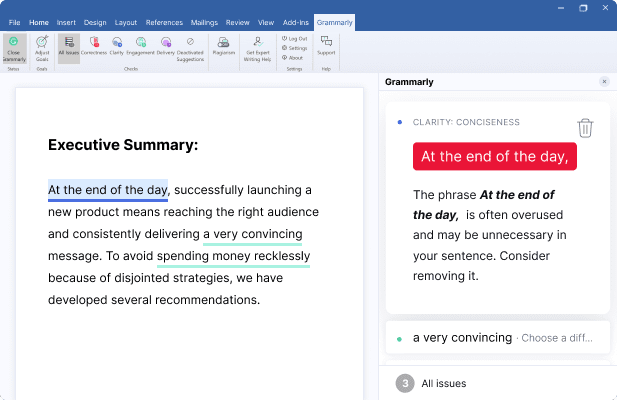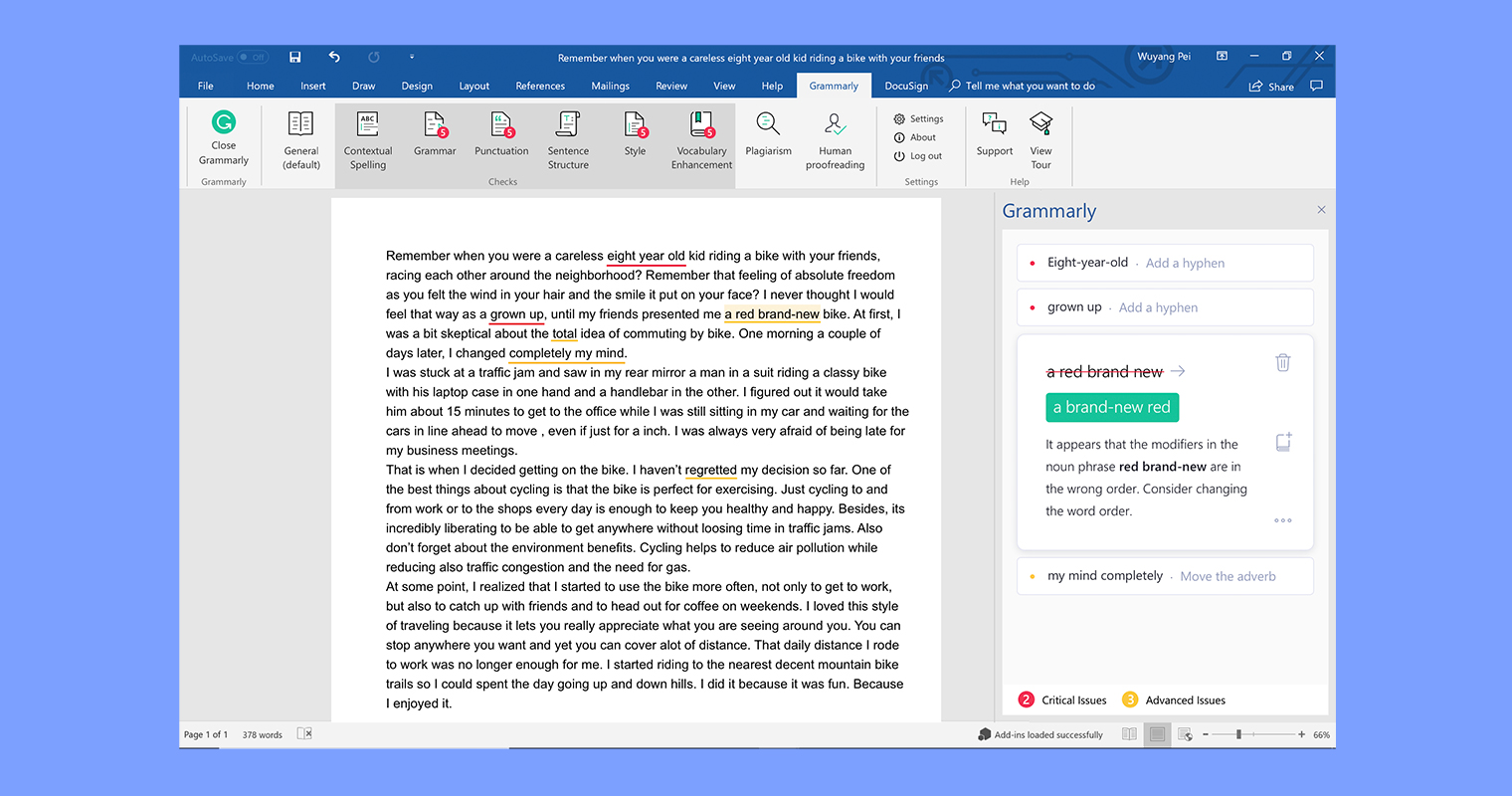- Does Grammarly Work With Wordpress
- Enable Grammarly In Word
- Does Grammarly Work On Word
- Does Grammarly Work On Wordpad
Grammarly for Microsoft Word and Outlook. Write better, clearer documents and emails. Grammarly can save you from misspellings, grammatical and punctuation mistakes, and other writing issues on all your favorite websites. What Does There Mean? There can be used in a couple of ways. One would presumably “use” or “enable” Grammarly while editing and writing a Word document. And for that you will need to install the “Grammarly add-in”. It works with only some Microsoft Office products and on Windows only. But it will work for W.
- Whisky (no e) refers to Scottish, Canadian, or Japanese grain spirits.
- Whiskey (with an e) refers to grain spirits distilled in Ireland and the United States.
As spelling mistakes go, you can do a lot worse than mixing up whisky and whiskey. Spelling mistakes can be embarrassing and funny, and there are always those that can get you into trouble. Using the incorrect form of the word whiskey is a mistake that will largely pass unnoticed unless you count liquor aficionados among your readers. Then you’ll take some flak, because whisky and whiskey might refer to the same kind of spirit, but they shouldn’t be thrown around without a care.
Whiskey or Whisky—How to Spell It?
Both spellings of the word, whiskey and whisky, are correct. The tricky part is matching the right spelling with the right country of origin. If you’re talking about a drink that’s been made in Scotland, Canada, or Japan, use the spelling without the e—whisky. When referring to drinks distilled in the United States or Ireland, use the e—whiskey. When pronouncing the words, you wouldn’t notice the difference, but it is apparent in writing:
The difference also carries on into the plural. For whiskey, the plural is whiskeys. For whisky, it’s whiskies.
The Difference Between Whiskey and Whisky
Does the spelling difference have to do with anything besides the country of origin? Are all whiskeys made one way and all whiskies made another way?
Not really. If you look at American, Scottish, and Irish whiskeys, you’ll notice that there are a few rules about how the liquor is made in those countries, but they have nothing to do with the spelling. A whisky can be distilled two times, as they usually do it in Scotland, and a whiskey can also be distilled two times, as they do it the United States. In Ireland, however, a whiskey is usually distilled three times. So the difference between a whiskey and a whisky just depends on the country of origin, and it would be wrong to say that all whiskeys or all whiskies are alike.
- There means the opposite of here; “at that place.”
- Their means “belongs to them.”
- They’re is a contraction of “they are” or “they were.”

There, their, and they’re are the big trio of commonly confused words. All three of them are pronounced the same, and the spelling differences don’t seem to do a good job of stopping people from mixing them up.

What Does There Mean?
There can be used in a couple of ways. As an adverb, there is the exact opposite of the word here and means “at that place”:
There is also often used as a pronoun. In that case, its role is usually to introduce a word or a clause:
What Does Their Mean?
Their is the third-person plural possessive pronoun:
What Does They’re Mean?

They’re is what you get when you contract “they are” or “they were.” It’s the same kind of thing that happens when you contract “we are” into “we’re,” or “you are” into “you’re”:
Does Grammarly Work With Wordpress
Examples
Enable Grammarly In Word

Does Grammarly Work On Word
Does Grammarly Work On Wordpad
